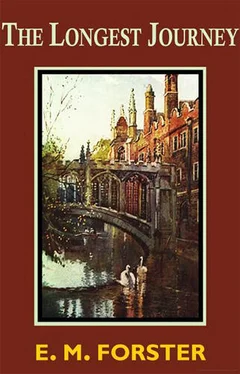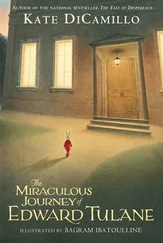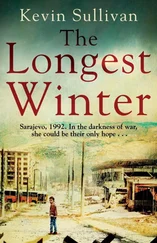Edward Forster - The Longest Journey
Здесь есть возможность читать онлайн «Edward Forster - The Longest Journey» весь текст электронной книги совершенно бесплатно (целиком полную версию без сокращений). В некоторых случаях можно слушать аудио, скачать через торрент в формате fb2 и присутствует краткое содержание. Жанр: Классическая проза, на английском языке. Описание произведения, (предисловие) а так же отзывы посетителей доступны на портале библиотеки ЛибКат.
- Название:The Longest Journey
- Автор:
- Жанр:
- Год:неизвестен
- ISBN:нет данных
- Рейтинг книги:5 / 5. Голосов: 1
-
Избранное:Добавить в избранное
- Отзывы:
-
Ваша оценка:
- 100
- 1
- 2
- 3
- 4
- 5
The Longest Journey: краткое содержание, описание и аннотация
Предлагаем к чтению аннотацию, описание, краткое содержание или предисловие (зависит от того, что написал сам автор книги «The Longest Journey»). Если вы не нашли необходимую информацию о книге — напишите в комментариях, мы постараемся отыскать её.
The Longest Journey — читать онлайн бесплатно полную книгу (весь текст) целиком
Ниже представлен текст книги, разбитый по страницам. Система сохранения места последней прочитанной страницы, позволяет с удобством читать онлайн бесплатно книгу «The Longest Journey», без необходимости каждый раз заново искать на чём Вы остановились. Поставьте закладку, и сможете в любой момент перейти на страницу, на которой закончили чтение.
Интервал:
Закладка:
"I'm going in," she observed. "It's far too wet." Again the cloud parted and caused her to add, "Weren't you rather kind to Flea?" But he was deep in the book. He read like a poor person, with lips apart and a finger that followed the print. At times he scratched his ear, or ran his tongue along a straggling blonde moustache. His face had after all a certain beauty: at all events the colouring was regal—a steady crimson from throat to forehead: the sun and the winds had worked on him daily ever since he was born. "The face of a strong man," thought the lady. "Let him thank his stars he isn't a silent strong man, or I'd turn him into the gutter." Suddenly it struck her that he was like an Irish terrier. He worried infinity as if it was a bone. Gnashing his teeth, he tried to carry the eternal subtleties by violence. As a man he often bored her, for he was always saying and doing the same things. But as a philosopher he really was a joy for ever, an inexhaustible buffoon. Taking up her pen, she began to caricature him. She drew a rabbit-warren where rabbits were at play in four dimensions. Before she had introduced the principal figure, she was interrupted by the footman. He had come up from the house to answer the bell. On seeing her he uttered a respectful cry.
"Madam! Are you here? I am very sorry. I looked for you everywhere. Mr. Elliot and Miss Pembroke arrived nearly an hour ago."
"Oh dear, oh dear!" exclaimed Mrs. Failing. "Take these papers. Where's the umbrella? Mr. Stephen will hold it over me. You hurry back and apologize. Are they happy?"
"Miss Pembroke inquired after you, madam."
"Have they had tea?"
"Yes, madam."
"Leighton!"
"Yes, sir."
"I believe you knew she was here all the time. You didn't want to wet your pretty skin."
"You must not call me 'she' to the servants," said Mrs. Failing as they walked away, she limping with a stick, he holding a great umbrella over her. "I will not have it." Then more pleasantly, "And don't tell him he lies. We all lie. I knew quite well they were coming by the four-six train. I saw it pass."
"That reminds me. Another child run over at the Roman crossing. Whish—bang—dead."
"Oh my foot! Oh my foot, my foot!" said Mrs. Failing, and paused to take breath.
"Bad?" he asked callously.
Leighton, with bowed head, passed them with the manuscript and disappeared among the laurels. The twinge of pain, which had been slight, passed away, and they proceeded, descending a green airless corridor which opened into the gravel drive.
"Isn't it odd," said Mrs. Failing, "that the Greeks should be enthusiastic about laurels—that Apollo should pursue any one who could possibly turn into such a frightful plant? What do you make of Rickie?"
"Oh, I don't know."
"Shall I lend you his story to read?"
He made no reply.
"Don't you think, Stephen, that a person in your precarious position ought to be civil to my relatives?"
"Sorry, Mrs. Failing. I meant to be civil. I only hadn't—anything to say."
She a laughed. "Are you a dear boy? I sometimes wonder; or are you a brute?"
Again he had nothing to say. Then she laughed more mischievously, and said—
"How can you be either, when you are a philosopher? Would you mind telling me—I am so anxious to learn—what happens to people when they die?"
"Don't ask ME." He knew by bitter experience that she was making fun of him.
"Oh, but I do ask you. Those paper books of yours are so up-to-date. For instance, what has happened to the child you say was killed on the line?"
The rain increased. The drops pattered hard on the leaves, and outside the corridor men and women were struggling, however stupidly, with the facts of life. Inside it they wrangled. She teased the boy, and laughed at his theories, and proved that no man can be an agnostic who has a sense of humour. Suddenly she stopped, not through any skill of his, but because she had remembered some words of Bacon: "The true atheist is he whose hands are cauterized by holy things." She thought of her distant youth. The world was not so humorous then, but it had been more important. For a moment she respected her companion, and determined to vex him no more.
They left the shelter of the laurels, crossed the broad drive, and were inside the house at last. She had got quite wet, for the weather would not let her play the simple life with impunity. As for him, he seemed a piece of the wet.
"Look here," she cried, as he hurried up to his attic, "don't shave!"
He was delighted with the permission.
"I have an idea that Miss Pembroke is of the type that pretends to be unconventional and really isn't. I want to see how she takes it. Don't shave."
In the drawing-room she could hear the guests conversing in the subdued tones of those who have not been welcomed. Having changed her dress and glanced at the poems of Milton, she went to them, with uplifted hands of apology and horror.
"But I must have tea," she announced, when they had assured her that they understood. "Otherwise I shall start by being cross. Agnes, stop me. Give me tea."
Agnes, looking pleased, moved to the table and served her hostess. Rickie followed with a pagoda of sandwiches and little cakes.
"I feel twenty-seven years younger. Rickie, you are so like your father. I feel it is twenty-seven years ago, and that he is bringing your mother to see me for the first time. It is curious—almost terrible—to see history repeating itself."
The remark was not tactful.
"I remember that visit well," she continued thoughtfully, "I suppose it was a wonderful visit, though we none of us knew it at the time. We all fell in love with your mother. I wish she would have fallen in love with us. She couldn't bear me, could she?"
"I never heard her say so, Aunt Emily."
"No; she wouldn't. I am sure your father said so, though. My dear boy, don't look so shocked. Your father and I hated each other. He said so, I said so, I say so; say so too. Then we shall start fair.—Just a cocoanut cake.—Agnes, don't you agree that it's always best to speak out?"
"Oh, rather, Mrs. Failing. But I'm shockingly straightforward."
"So am I," said the lady. "I like to get down to the bedrock.—Hullo! Slippers? Slippers in the drawingroom?"
A young man had come in silently. Agnes observed with a feeling of regret that he had not shaved. Rickie, after a moment's hesitation, remembered who it was, and shook hands with him. "You've grown since I saw you last."
He showed his teeth amiably.
"How long was that?" asked Mrs. Failing.
"Three years, wasn't it? Came over from the Ansells—friends."
"How disgraceful, Rickie! Why don't you come and see me oftener?"
He could not retort that she never asked him.
"Agnes will make you come. Oh, let me introduce Mr. Wonham—Miss Pembroke."
"I am deputy hostess," said Agnes. "May I give you some tea?"
"Thank you, but I have had a little beer."
"It is one of the shepherds," said Mrs. Failing, in low tones.
Agnes smiled rather wildly. Mrs. Lewin had warned her that Cadover was an extraordinary place, and that one must never be astonished at anything. A shepherd in the drawing-room! No harm. Still one ought to know whether it was a shepherd or not. At all events he was in gentleman's clothing. She was anxious not to start with a blunder, and therefore did not talk to the young fellow, but tried to gather what he was from the demeanour of Rickie.
"I am sure, Mrs. Failing, that you need not talk of 'making' people come to Cadover. There will be no difficulty, I should say."
"Thank you, my dear. Do you know who once said those exact words to me?"
"Who?"
"Rickie's mother."
"Did she really?"
"My sister-in-law was a dear. You will have heard Rickie's praises, but now you must hear mine. I never knew a woman who was so unselfish and yet had such capacities for life."
Читать дальшеИнтервал:
Закладка:
Похожие книги на «The Longest Journey»
Представляем Вашему вниманию похожие книги на «The Longest Journey» списком для выбора. Мы отобрали схожую по названию и смыслу литературу в надежде предоставить читателям больше вариантов отыскать новые, интересные, ещё непрочитанные произведения.
Обсуждение, отзывы о книге «The Longest Journey» и просто собственные мнения читателей. Оставьте ваши комментарии, напишите, что Вы думаете о произведении, его смысле или главных героях. Укажите что конкретно понравилось, а что нет, и почему Вы так считаете.












